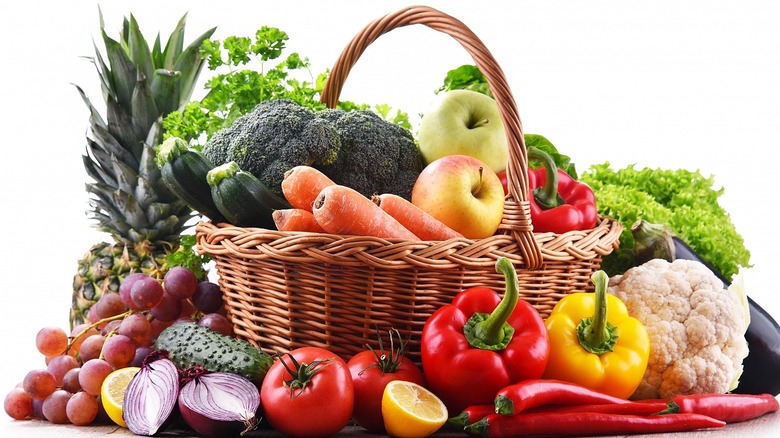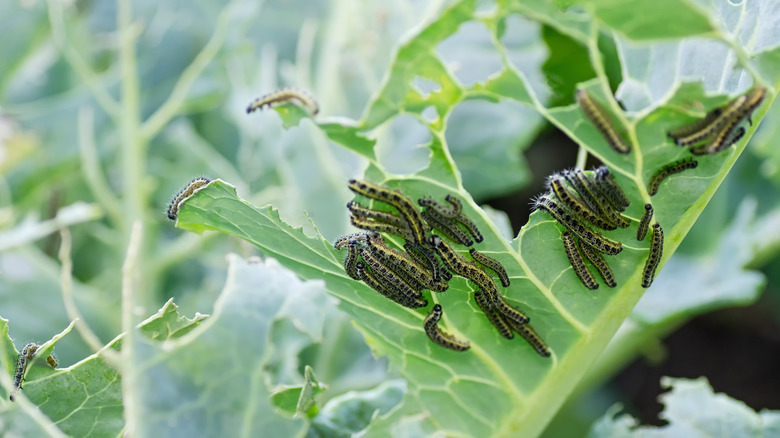Why So Many Out-Of-State Fruits And Vegetables Are Banned From California
Unless you live in California, you might associate the natural bounties of this sunny state with groves of avocado and citrus trees. But California's $30 billion agricultural industry doesn't owe everything to avocado toast. According to the late agricultural economist Karen Klonsky, California grows more than 90% of the United States' certified-organic almonds, artichokes, avocados, broccoli, cauliflower, celery, dates, figs, grapes, strawberries, lemons, lettuce, plums, and walnuts. Of that list, lettuce, tomatoes, spinach, broccoli, and celery "account for two-thirds of all organic veggie sales" in the country, while grapes are even more widespread, comprising half of all organic fruit sales in America.
Considering the Golden State's reign over organic goods, it's no wonder California voters concerned about animal welfare opted to ban the local sales of pork products derived from pen-raised hogs per a section of the Farm Animal Confinement Proposition, which took effect earlier this year. But according to the California Department of Food & Agriculture, inhumanely produced bacon isn't the only food product banned in the state. Here's why certain out-of-state produce poses a threat to one of California's most profitable industries.
Outside produce can bring pests
California's prolific organic produce farms are successful for a reason — in addition to the fact that the state "has a disproportionate share of the world's best farmland," per Farm Together, the region's Mediterranean-like climate is the perfect host for agriculture. When fruits and veggies come in from other states, there's a strong possibility that they'll bring unwelcome pests along.
While California bans products like citrus fruits, pecans, and walnuts from all other states, according to the California Department of Food & Agriculture, other products are only banned from certain states. Apples and apricots, for example, are a-okay unless they come from North and South Dakota, Kansas, Nebraska, Oklahoma, Texas, parts of Utah, and anywhere east of those places due to the threat of blueberry maggots. The same goes for avocados, which are restricted from parts of Florida and Texas in order to keep out two kinds of fruit flies. It's not all restrictions; if you're a banana, a head of broccoli, a bunch of beets or carrots, or a head of cabbage, for example, you can come to California no matter where your journey started. As for the restricted products, it's nothing personal — California just can't risk infecting its lucrative crops.

